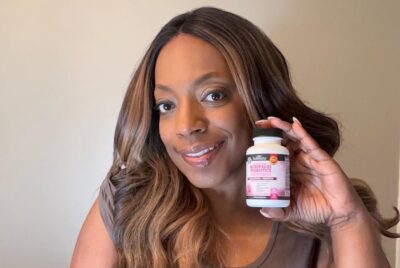Can a Woman Have an Orgasm After Menopause?
We may earn a commission for purchases made using our links. Please see our disclosure to learn more.
Introduction
Menopause is a natural stage in a woman’s life that marks the end of her reproductive years. It is accompanied by various physical and hormonal changes, which can have an impact on sexual health and function. One common concern among women experiencing menopause is whether they can still have orgasms. In this article, as an enthusiast and advisor in matters of menopause, I aim to provide helpful suggestions and reasons for my suggestions regarding the possibility of women experiencing orgasms after menopause.
Understanding Menopause
Before delving into the topic, it’s essential to understand what menopause entails. Menopause is typically diagnosed when a woman hasn’t had a menstrual period for 12 consecutive months. During this stage, the ovaries produce fewer reproductive hormones, such as estrogen and progesterone, which leads to various changes in the body.
Changes in Sexual Function during Menopause
Decreased Estrogen Levels:
Estrogen plays a crucial role in maintaining vaginal lubrication, blood flow, and sensitivity. With decreased estrogen levels during menopause, these aspects may be affected, making sexual activity potentially less comfortable or enjoyable.
Vaginal Dryness and Atrophy:
Vaginal dryness is a common symptom during menopause. The thinning and inflammation of vaginal tissues, known as vaginal atrophy, can lead to discomfort or pain during intercourse, making it challenging to achieve orgasm.
Reduced Libido:
Hormonal changes and other factors related to menopause can contribute to a decrease in sexual desire. Reduced libido may affect a woman’s ability to experience sexual pleasure and reach orgasm.
Can Women Have Orgasms after Menopause?
The ability to have orgasms after menopause varies among women. While some may experience changes in orgasmic response, many women can still achieve orgasms. It’s important to note that the experience may differ from before menopause due to physiological changes. Several factors can influence orgasmic response, such as:
Emotional and Psychological Factors:
Stress, anxiety, relationship issues, and self-esteem can affect sexual satisfaction and orgasmic experience. Addressing these factors can significantly improve sexual well-being.
Physical Health and Lifestyle:
Leading a healthy lifestyle, including regular exercise, a balanced diet, and sufficient sleep, can positively impact sexual function. It is also crucial to manage any chronic health conditions that may affect sexual health.
Stimulation and Foreplay:
Engaging in longer periods of foreplay and exploring different forms of sexual stimulation, such as clitoral stimulation, can enhance pleasure and increase the likelihood of reaching orgasm.
Tips for Achieving Orgasm after Menopause
Maintaining Sexual Health:
Regular gynecological check-ups, including discussions about sexual concerns, can help address any physical issues that may impact sexual function. Additionally, using prescribed vaginal estrogen therapy or moisturizers can alleviate vaginal dryness and improve comfort during intercourse.
Communication with Your Partner:
Open and honest communication with your partner about your desires, concerns, and any changes you’re experiencing can foster understanding and create a supportive environment for sexual exploration.
Experimenting with Different Stimulation Techniques:
Exploring various forms of sexual stimulation, such as manual stimulation, oral sex, or incorporating sex toys, can help discover new avenues of pleasure and increase the chances of achieving orgasm.
Utilizing Lubricants:
Lubricants can enhance comfort and reduce friction during sexual activity. Water-based or silicone-based lubricants can be used to alleviate vaginal dryness and improve the overall experience.
Importance of Self-Care and Emotional Well-being
During menopause, it is crucial to prioritize self-care and emotional well-being. Engaging in activities that reduce stress, such as yoga, meditation, or pursuing hobbies, can positively impact overall sexual health. Taking time for oneself, maintaining healthy relationships, and nurturing emotional intimacy with a partner are essential aspects of sexual satisfaction.
Seeking Professional Help
If difficulties in achieving orgasm persist or significantly impact your overall well-being, seeking guidance from a healthcare professional or a sex therapist experienced in menopause-related concerns can provide valuable support and tailored solutions.
Conclusion
Menopause does not mark the end of a woman’s ability to have orgasms. While hormonal changes and physical symptoms may present challenges, with the right approach, communication, and self-care, women can continue to enjoy fulfilling and satisfying sexual experiences after menopause. It’s essential to explore different techniques, prioritize overall well-being, and seek professional help when needed.
FAQs
Q: Are orgasms less intense after menopause?
A: The intensity of orgasms can vary among women and may be influenced by factors such as overall health, emotional well-being, and stimulation techniques. Some women report no significant changes in orgasm intensity after menopause, while others may experience differences.
Q: Can hormone replacement therapy (HRT) improve orgasmic response after menopause?
A: Hormone replacement therapy, which involves the use of estrogen and/or progesterone, may alleviate certain menopausal symptoms and improve overall sexual health. However, its specific impact on orgasmic response can vary among individuals.
Q: Can psychological factors alone affect a woman’s ability to have orgasms after menopause?
A: Psychological factors, such as stress, anxiety, or relationship issues, can influence a woman’s ability to have orgasms after menopause. Addressing these factors through therapy or counseling can contribute to a more satisfying sexual experience.
Q: How long does menopause typically last?
A: Menopause itself is a one-time event, but the transition leading up to menopause, known as perimenopause, can last several years. On average, women reach menopause around the age of 51.
Q: Can lifestyle changes, such as diet and exercise, impact orgasmic response after menopause?
A: Adopting a healthy lifestyle that includes regular exercise, a balanced diet, and sufficient sleep can positively impact overall sexual health. These factors may contribute to improved orgasmic response after menopause.




